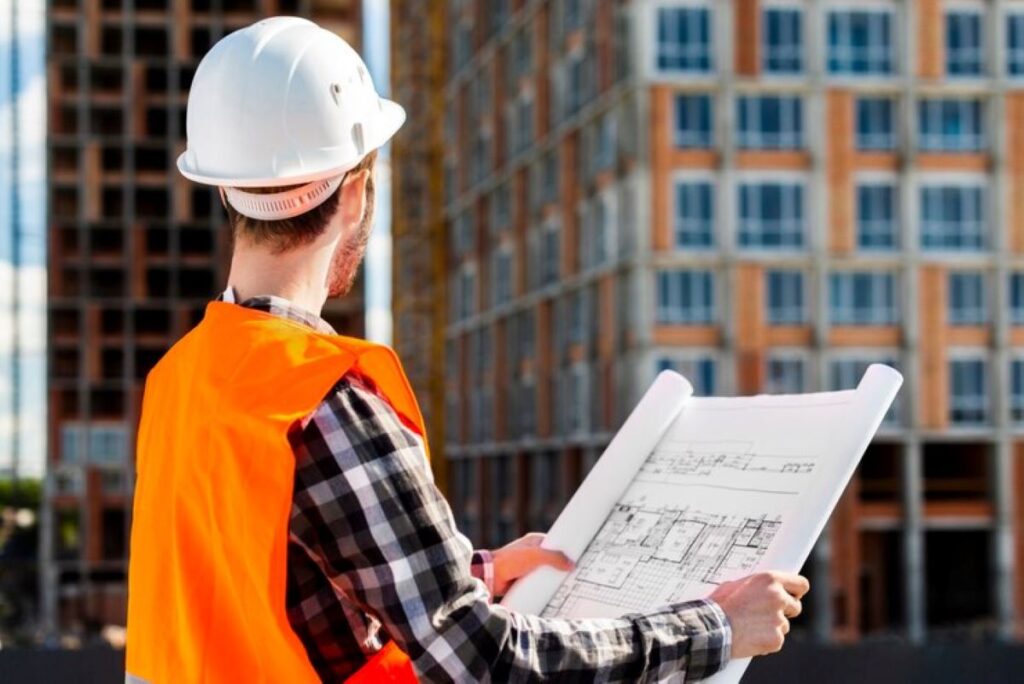When embarking on a construction project, whether for a residential home, a commercial enterprise, or any other development, accuracy and precision are paramount. One key aspect that is often overlooked in the planning stages is the role of a construction surveyor. A proficient construction surveyor can offer invaluable insights and services that help to streamline the entire building process, mitigate risks, and ensure compliance with local regulations.
This article will delve into the importance of involving a construction surveyor early in your project and the myriad benefits their expertise brings.
Understanding the Role of a Construction Surveyor
A construction surveyor is a specialized professional who plays an essential role in the pre-construction, construction, and post-construction phases of a project. Their responsibilities include measuring land, mapping topography, and determining land boundaries to ensure accurate construction locations. Understanding their multifaceted role can highlight why hiring one is crucial.
Initially, the surveyor is tasked with conducting thorough site assessments. This includes analyzing the landscape and evaluating potential risks that could interfere with construction, such as changes in elevation, proximity to water bodies, or unstable soil types. The information gathered informs project planning, guiding architects and construction teams to make informed decisions that avoid pitfalls.
The Surveying Process
The surveying process typically begins with a land survey. During this stage, the surveyor will create a detailed blueprint of the site, a critical document that serves as the foundation for design and construction. This blueprint includes existing structures, natural features, and legal boundaries, which ensures that all construction adheres to local regulations and zoning laws.
Moreover, the construction surveyor utilizes advanced technology, including GPS and computer-aided design (CAD) software, to enhance the accuracy of their measurements. This technological integration allows for complex data analysis, ensuring that every element of the design aligns with both client expectations and regulatory standards. The use of drones for aerial surveys has also gained popularity, providing a bird’s-eye view of the site that can reveal insights not easily visible from the ground. This innovative approach not only speeds up the surveying process but also enhances the precision of the data collected.
Regulatory Compliance and Documentation
In addition to site measurements and evaluations, construction surveyors are instrumental in ensuring compliance with local, state, and federal laws. This might involve obtaining necessary permits and licenses—all of which require thorough documentation. The surveyor’s expertise can help navigate the often labyrinthine regulatory landscape of construction, which, if mismanaged, can lead to costly delays and penalties.
By involving a surveyor early on, clients can avoid mistakes that could compromise the legality of their project. The surveyor’s ability to document and report findings professionally also aids in creating an audit trail that can be invaluable if any disputes arise once construction is underway. Furthermore, their involvement extends beyond just compliance; they often serve as a liaison between various stakeholders, including engineers, architects, and contractors, ensuring that everyone is aligned and informed throughout the construction process. This collaborative approach not only fosters a smoother workflow but also enhances the overall quality and safety of the project, ultimately leading to a successful completion that meets or exceeds expectations.
Benefits of Hiring a Construction Surveyor
Engaging a construction surveyor offers several key advantages, each of which can have a significant impact on the overall success of your building project. Below are some of the benefits associated with their involvement:
1. Accuracy and Precision
The primary advantage of hiring a construction surveyor is the enhancement of accuracy and precision throughout the building process. Inaccurate measurements can lead to costly construction errors, delays, and safety hazards. A construction surveyor is trained to take precise measurements, ensuring that every aspect of the project adheres to specified dimensions and standards. Visit https://www.safeworkaustralia.gov.au/safety-topic/industry-and-business/construction/managing-risks to get managing risks while construction.
Furthermore, a surveyor’s expertise minimizes human error, particularly in complex projects where even minor miscalculations can have cascading effects. Accurate surveys contribute immensely to project efficiency and effectiveness. For instance, when establishing the foundation of a building, a surveyor ensures that the layout is perfectly aligned with the architectural plans, which is crucial for the structural integrity of the entire project. This level of precision not only safeguards the investment but also enhances the longevity of the structure.
2. Cost-Effective Planning
While the initial cost of hiring a construction surveyor can seem like an expense, it is often a smart investment in the long run. By ensuring a robust and comprehensive start to the project, surveyors help avoid unplanned expenses due to errors or revisions down the line. Their input can also facilitate budget planning, aligning costs with construction phases and material requirements.
Additionally, the professional insights offered by a surveyor can guide clients in making strategic decisions about materials and construction methods that range within their budgets, avoiding waste and enhancing overall cost efficiency. For example, a surveyor can recommend alternative materials that meet the project’s specifications while being more affordable, thus allowing for better allocation of funds across various aspects of the construction process. This proactive approach not only saves money but can also lead to innovative solutions that improve the overall design and functionality of the project.
3. Dispute Resolution
Engaging a construction surveyor can also act as a preventative measure against potential disputes. With every phase of the project documented accurately, clients have a solid reference point to resolve disagreements that may arise regarding property lines, boundaries, or compliance issues.
In the unfortunate event of an issue during construction, having a qualified surveyor can expedite dispute resolution processes, minimizing delays and escalating costs. This stability can also improve relations among stakeholders, including contractors and property owners, enhancing teamwork and communication throughout the project. Moreover, a surveyor’s involvement in the early stages can help establish clear expectations and responsibilities, further reducing the likelihood of misunderstandings that could lead to conflicts later on. Their impartial perspective can serve as a valuable asset in negotiations, ensuring that all parties feel heard and respected, which is essential for maintaining a collaborative work environment.

Conclusion
In conclusion, hiring a construction surveyor is not merely a suggestion but a vital step for anyone looking to ensure the success of their building project. From their ability to provide accurate data to the guidance they offer in navigating legal requirements, their contributions are invaluable. Whether you are building a new home, expanding an office, or undertaking a massive commercial project, their expertise can save you not just money but also time and headaches.
Before you begin your next construction endeavor, consider reaching out to a qualified construction surveyor. Their expertise can pave the way for a smoother, more efficient construction process and help actualize your vision effectively and accurately.
More to Read : Everything You Need to Know About a Boundary Identification Survey

